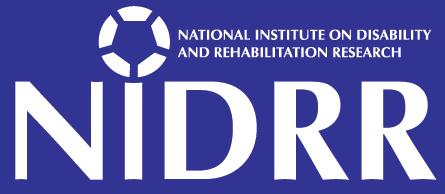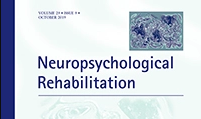BrainAid conducts cutting edge interdisciplinary research combining artificial intelligence(AI), neuropsychology, and consumer electronics in the application of automated task planning and execution to improve people’s lives. The needs of individuals with memory impairments are growing. We are currently participating in four funded research proposals. We are interested in collaborating with clinicians and academic researchers. Those interested in collaborations and licensing PEAT for research projects can contact us at info@brainaid.com.
 |
“Efficacy of A Custom-Fitting Cognitive Orthotic with Automatic Planning and Cueing Assistance.” | |
| Dr. Jeffery Englander P.I., Tamara Bushnik, Co-P.I., Richard Levinson was Co-Project Manager, Co-Author, NIDRR-funded grant(2004-2008) This clinical trial at Santa Clara Valley Medical Center, San Jose, CA included with more than 90 subjects, primarily with brain injury and stroke, as been completed with positive results which are currently awaiting publication. | ||
| Funding | National Institute on Disability and Rehabilitation Research(NIDRR Contract H133G040145) | |
| Status | Complete | |
| Results | Over time, participants receiving the PEAT intervention showed improvements, at 3 and 6 months, in depressive symptomatology, cognitive functioning and social integration, disability, basic living skills, activities of daily living (ADL), and supervision needs. Additional improvements were noted with regard to life satisfaction between baseline and 6 months. Overall there appears to be a definite benefit of cognitive intervention for those who participated in this study. Both [the control and intervention] groups experienced similar improvements overtime except with regard to ADLs; individuals in the PEAT group appeared to be doing better than the controls at 3 and 6 months as measured by the M2PI. | |
| Article | Unpublished Manuscript - Click here to read the full journal article about this clinical trial which was submitted for the Journal of Head Trauma Rehabilitation but never published because it included subjects who had other cognitive disorders besides brain injury such as stroke and MS. |
 |
“Effectiveness of an electronic cognitive aid in patients with acquired brain injury: A multicentre randomised parallel- group study” | |
| E.A. De Joode, C.M. Van Heugten, F.R.J. Verhey, and M.P.J. Van Boxtel, 2012. School for Mental Health and Neuroscience, Maastricht University, Maastricht, The Netherlands | ||
| Journal | Neuropsychological Rehabilitation: An International Journal, DOI:10.1080/09602011.2012.726632 | |
| Status | Complete | |
| Article | Read the article here |
 |
“CRATER Therapy for Veterans With Mild to Moderate Cognitive Impairment and Comorbid PTSD.” | |
| Dr. Harriet Katz Zeiner, Journal of Trauma Rehabilitation. Division 56. American Psychological Association. Summer 2014. | ||
| Read the article here |
 |
“Use of Cognitive Remidiation Device/PDA with Planning Software to Reduce Dysfunctional Hypomanic Behavior in a Combat Veteran with Co-morbid Multiple Neurological and Psychological Disorders” | |
| F Pastrana, L Wurst and H Zeiner. National Academy of Neuropsychology (NAN) New Orleans, LA. 2009. Published in the NAN journal "Archives of Clinical Neuropsychology, 24(5). | ||
| Read the abstract here |
| “PEAT Communication Scheduler for Autism” | ||
| Goal | This study was completed in Dec. 2012. Four students with Autism Spectrum Disorder or other intellectual disabilities and their families, teachers and classroom aides are evaluating the PEAT Smartphone application in the classroom at Pacific Autism Center for Education. Many people with Autism Spectrum disorders or Intellectual Disabilities have difficulty remembering their schedules, require cueing from others in order to complete tasks such as school work and require supervision when traveling within their community. They also have trouble communicating quickly and effectively which sometimes leads to disruptive behaviors. This study will test whether using PEAT will provide them with an effective task cueing, and a location or task dependent communication system. | |
| Funding | Funded by US Department of Education (SBIR) Phase I under Contract # ED-IES-12-C-0047 | |
| Status | Completed Dec. 2012 |